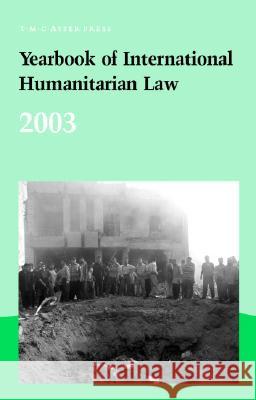Yearbook of International Humanitarian Law - 2003: Volume 6, 2003 » książka
Yearbook of International Humanitarian Law - 2003: Volume 6, 2003
ISBN-13: 9789067042031 / Angielski / Twarda / 2006 / 874 str.
The need to enforce and further develop international legal protection after 11 Sep- 3 tember 2001 has been discussed in prominent fora before. A wide range of issues (self-defence, humanitarian law, human rights, national laws and regulations, cr- inal sanctions) must be considered in this context. Different phases of application of the law (international and non-international armed conflict, peace enforcement, post-conflict peace building, etc. ) are affected. Misconceptions have been propa- 4 gated at the highest government levels and have created new problems rather than solving existing ones. Among expert observers, such developments may cause feelings of deja vu. In the years after the adoption of the 1977 Additional Protocols, when one might have expected that all efforts would be taken to accelerate the ratification of these new instruments and ensure respect for their provisions, Protocol I was criticised as 5 being in the service of terror, an allegation that won certain influence although it 6 was promptly and convincingly refuted. Concerns expressed more recently that the application of certain rules of humanitarian law might impede the fight against 7 terrorism may stem from similar ways of thinking. They have made it necessary to explicate in detail that terrorist acts when committed during armed conflict are - rious violations of humanitarian law, prohibited without any exception in the Geneva Conventions, their Additional Protocols and other international treaties 3. The attack on the World Trade Center; J. J."











